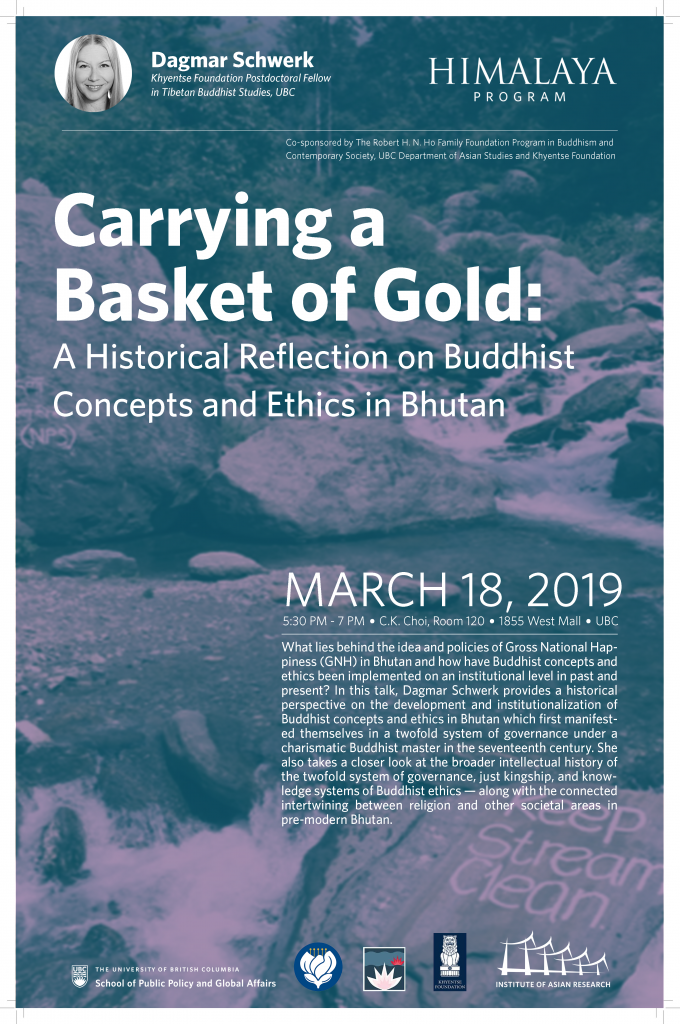This talk is co-sponsored with the Robert H.N. Ho Family Foundation Program in Buddhism and Contemporary Society, UBC Department of Asian Studies, and Khyentse Foundation.
Abstract
What lies behind the idea and policies of Gross National Happiness (GNH) in Bhutan and how have Buddhist concepts and ethics been implemented on an institutional level in past and present? In this talk, Dagmar Schwerk provides a historical perspective on the development and institutionalization of Buddhist concepts and ethics in Bhutan which first manifested themselves in a twofold system of governance under a charismatic Buddhist master in the seventeenth century. She also takes a closer look at the broader intellectual history of the twofold system of governance, just kingship, and knowledge systems of Buddhist ethics—along with the connected intertwining between religion and other societal areas in pre-modern Bhutan.
About the Speaker
Dagmar Schwerk’s research covers Indo-Tibetan Buddhism and Tibetan and Bhutanese intellectual, political, and social history. She holds a Ph.D. from the University of Hamburg, Germany. Her Ph.D. thesis focused on the Mahāmudrā controversy in Tibetan Buddhism and is the current Khyentse Foundation Postdoctoral Fellow in Tibetan Buddhist Studies at UBC’s Department of Asian Studies.
In her current research activities, she is especially interested in Buddhist conceptions of state and governance as well as applied Buddhist ethics in secular contexts in Asia and the West. In her talk, she will present findings connected to a recently completed post-doctoral research project at the University of Leipzig, Germany. (“Bhutan in Transition. Metamorphosis and Institutionalisation of Buddhist Concepts”).
